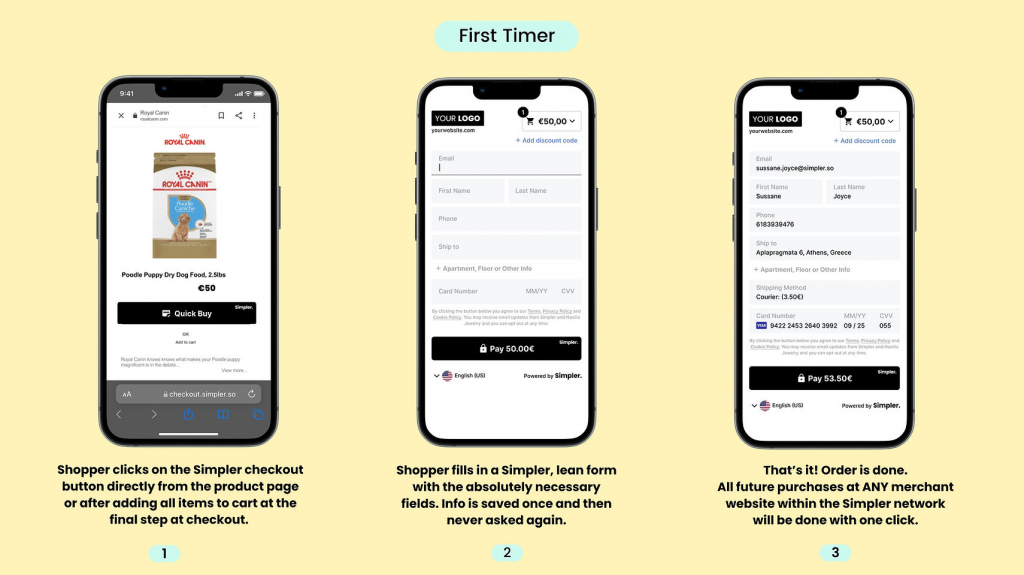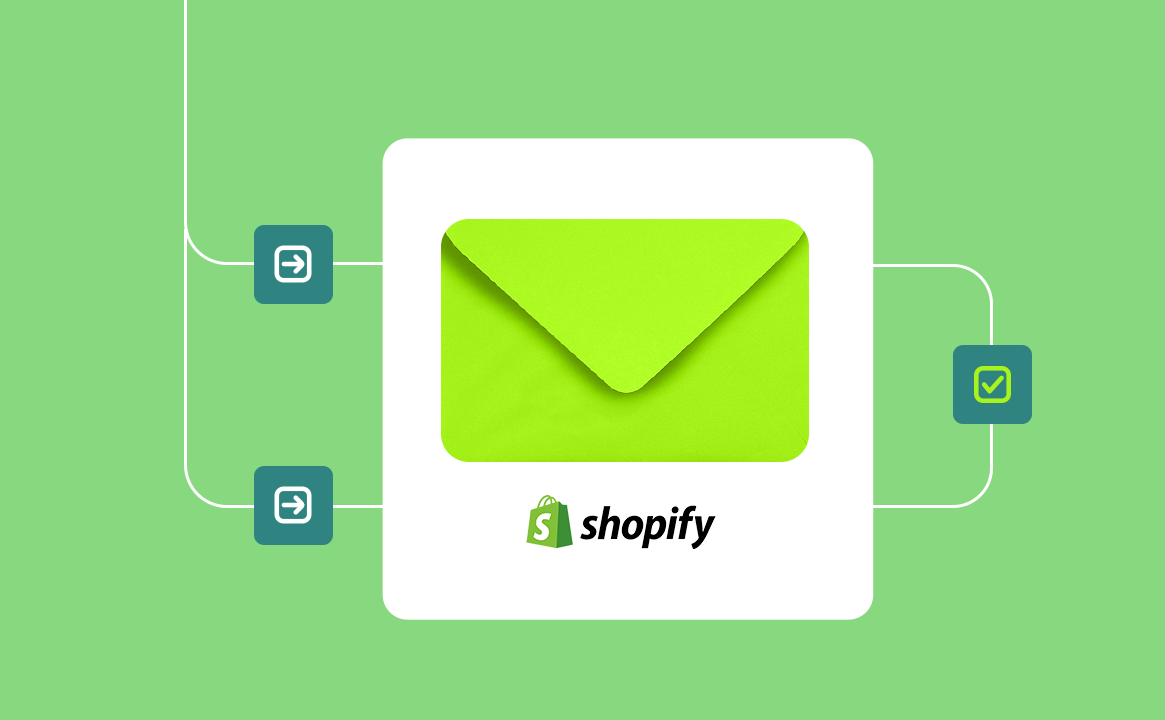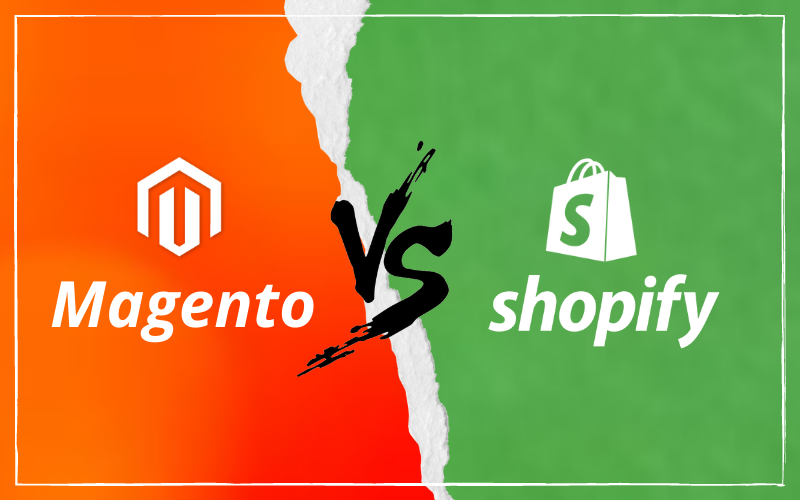
Shopify, a premier eCommerce system supporting a million businesses worldwide, is a favored platform for online store creation. While launching an eCommerce site is essential, the integration of a mobile app is equally vital for business growth and extended customer outreach. This article explores the increasing significance of mobile apps, given the integral role mobile phones play in daily life. The growing demand for mobile apps, driven by technological advancements, reflects their indispensability. Many business owners prioritize mobile applications over a website to achieve long-term objectives, highlighting the critical role of mobile apps in enhancing sales on the Shopify platform. Explore the post for insights into the evolving landscape of online retail.
- How to define a Shopify mobile app?
In the current digital age, a mobile app for your Shopify store can enhance sales and simplify the shopping experience for customers. Developing a Shopify mobile app offers a robust solution, enhancing clients’ online businesses significantly.
Shopify apps function as specialized programs that augment the capabilities of a Shopify e-commerce store, providing features not available on the standard platform. A Shopify mobile app for users is a mobile application designed to enhance the shopping experience on the Shopify platform. Developed using technologies like React Native or Swift/Kotlin, the app connects to Shopify stores via the Shopify API. The app’s features typically include product browsing, order management, and customer interactions, providing a user-friendly interface adhering to Shopify’s design principles. Regular updates ensure continued compatibility with Shopify’s evolving API and offer users an optimized shopping tool. Renowned for its distinctive features and numerous advantages, Shopify is the premier choice in the e-commerce business. Utilizing the mobile app is essential to enhance sales on a Shopify store, facilitating consumer engagement and driving increased revenue.
- What are the benefits of having a mobile app for your eCommerce business?
In the year 2020, approximately 50% of retailers aimed to give precedence to enhancing the mobile app experience, and these intentions have materialized. Major revenue-generating retailers like Amazon, Walmart, and Target have firmly established their presence in the mobile app domain, while smaller retailers are catching up. The adoption of mobile apps is often grounded in a compelling rationale, underscoring the significance of this trend in the retail landscape. Although mobile-friendly websites allow brands to reach their customers on mobile, native applications still offer a broader scope of unique benefits as follows:
Enhanced Brand Recognition
Mobile applications feature prominently as brand logos on users’ smartphones, checked an average of 352 times daily by the typical American. Once downloaded, an app remains in constant view, serving as a continual reminder that the brand is easily accessible with just a tap.
Cost Savings in Marketing
Contrary to websites that require significant SEO investments and expansive marketing budgets to attract users, mobile apps engage customers directly through push notifications and in-app messages or pop-ups. With the app consistently present on a user’s phone, companies can reduce advertising and marketing costs significantly.
Offline Functionality
Offline functionality in a Shopify mobile app is imperative for ensuring a consistent and uninterrupted user experience, especially in areas with unreliable internet connectivity. By implementing data caching strategies, the app can store essential information locally on the device, enabling users to browse products, view orders, and manage their cart even when offline. Utilizing service workers, if building a Progressive Web App, allows for the caching of assets, ensuring a smooth offline experience.
Critical features, such as product viewing and cart management, should be designed to work independently of an internet connection. Users can seamlessly add items to their cart offline, and the app can synchronize these actions with the Shopify store once online connectivity is reestablished. Robust error handling and clear user feedback mechanisms are essential, providing users with information about their offline status and guiding them on actions that can be performed in the absence of internet access.
Enhanced Personalization
Mobile apps amplify customization capabilities, enabling tailored communication based on user interests, location, and behavior. Brands can fine-tune in-app visuals and messaging to capture and retain user attention, leading to a 10-15% increase in revenue through more personalized interactions.
Optimized User Experience
Designed with a specific platform in mind, mobile applications provide a superior user experience with native UI elements, ensuring convenience, simplified navigation, and dedicated functions that surpass what websites can offer.
- Ways to Boost Sales on Your Shopify Store Through Mobile App Utilization.
a. Enable Push Notifications

A primary benefit of a mobile commerce app lies in its capacity to maintain direct communication with customers, addressing a limitation in communication found in a standalone Shopify web store. Currently, your communication strategy likely relies on email to connect with shoppers – a method that faces various challenges for success. Converting website visitors into email subscribers requires multiple steps, posing a considerable challenge. Even if a customer makes a purchase, opting into emails is not guaranteed for everyone. Even after joining your email list, there’s no assurance of effective communication, as emails must be delivered and opened. With an average of 121 emails received daily per person, the likelihood of this happening is uncertain.
This is where the effectiveness of push notifications becomes apparent. To receive push notifications, customers only need to download your app. In terms of engagement, push notifications outperform emails across all categories. They display on a user’s mobile device like a text message, significantly increasing the chances of the message being read compared to a promotional email buried in an inbox.
In the realm of Shopify sales, utilizing push notifications is a powerful strategy, yet a cautious and responsible approach is vital. Excessive messaging risks annoying users, potentially leading to notification muting. Achieving a balance is paramount, avoiding overwhelming users with an excess of alerts. To refine the timing of push notifications, leveraging Google Analytics (GA4) becomes crucial. GA4 offers valuable insights into user behavior, enabling the analysis of usage frequency within specific time frames. By strategically scheduling push notifications based on this data, optimal times per day or week can be identified, enhancing user engagement without causing annoyance.
Simultaneously, effective promotions demand relevance to users’ needs. Push notifications for mobile apps, an exclusive feature compared to standalone websites, provide a unique advantage. Through geofencing technology in your Shopify mobile app, highly pertinent promotions can be delivered. By utilizing GPS on iOS and Android devices, push notifications are automatically sent when users enter predefined locations. For instance, customers in a ski resort lobby might receive offers on cold-weather gear, while those near a beach could get discounts on sunscreen or swimwear. Integrating location-based services elevates the user experience, delivering real-time and relevant promotions. This personalized approach significantly increases the likelihood of mobile users making purchases through your Shopify store app.
b. Optimize the payment process
A lengthy and intricate checkout process has the potential to drive customers away without completing a purchase. The purchasing steps involve finding the product, adding it to the cart, navigating to the cart, entering name and contact information, providing billing and shipping details, and finalizing the checkout. As the number of steps increases, the chances rise for customers to reconsider, encounter frustration, or commit errors, ultimately resulting in cart abandonment. To prevent sales loss, streamline the checkout process on your Shopify mobile app.
Facilitate guest checkouts, allow different payment methods, and implement auto-fill features for time-saving. Additionally, prioritize secure payment options to instill confidence in customers. Consider providing promotions such as free delivery or discounts to motivate customers to complete their orders. This approach benefits not only guest checkouts but also regular customer accounts, expanding sellers’ reach to Shop’s network of 100 million shoppers.
The solution is straightforward, implement one-click purchasing through a mobile app. This trend, pioneered by Amazon, has been embraced by e-commerce retailers worldwide. Just incorporate a “Buy Now” button directly on your product pages. This eliminates the intricate checkout process and the requirement for customers to input extensive information on mobile devices, a potentially cumbersome task. Users already have their name, contact details, shipping information, and payment method stored in their customer profile within the app for their next purchase. This user-friendly approach streamlines the buying experience, enhancing convenience and reducing barriers to completing transactions.
Checkouts become swift, taking only a few seconds, thereby boosting conversion rates and reducing abandonment rates. This technology can even be leveraged for experimenting with your pricing strategy.

c. Improve Customer Personalization
Enhancing the shopping experience involves leveraging AI technology within app development to offer personalized recommendations. By utilizing mobile apps, valuable data can be extracted, enabling tailored suggestions, exclusive discounts, and special offers that cater to individual preferences, ultimately boosting customer satisfaction.
Consider a user exploring an online fashion store. Through AI-driven personalization, the app can analyze the user’s browsing history and preferences, presenting them with a curated selection of clothing items that align with their style. This not only captures the user’s interest but also significantly increases the likelihood of a successful purchase.
Optimizing personalization in this manner contributes to higher sales and overall customer contentment. By tailoring recommendations to individual tastes, businesses can create a more engaging and satisfying shopping journey, fostering a stronger connection between the user and the platform.
d. Improve customer service
Every improvement decision for your Shopify store should center around the customer’s preferences. Ultimately, customers show a clear preference for mobile apps over websites.
With a mobile commerce app, customers can seamlessly track their order status, receive shipping updates, and access tracking information. Unlike the cumbersome process of tracking a delivery without an app, where users have to deal with third-party tracking numbers through separate emails and external websites, the app simplifies this with just a few clicks.
Moreover, the app provides a platform for enhanced customer support. Live chat with a customer service representative becomes effortlessly accessible within the app. Customers can submit inquiries and initiate support tickets directly through the app interface.
While minimizing returns is ideal, facilitating an easy return process is essential for eCommerce. Following the lead of successful giants like Amazon, your app can streamline returns by generating QR codes. This simplifies the return process for customers who need to bring items to a shipment center or UPS store, where the QR code from the app can be swiftly scanned.
e. Include Loyalty Program
Implementing loyalty programs stands out as one of the most effective strategies for customer retention. By offering incentives, loyalty programs encourage customers to increase their spending and shopping frequency, ultimately boosting sales for your Shopify store. While it’s possible to have a customer loyalty program without a mobile app, integrating an app can significantly elevate the program’s effectiveness.
The reason lies in the fact that customers are unlikely to visit your website daily, and even your most loyal patrons may only make online purchases once or twice a month. Checking their loyalty status becomes less likely if they have to navigate to your website, log in, and find their customer profile. In this scenario, the program becomes an afterthought. In contrast, customers use their phones daily, making your app just a click away at any moment. This accessibility simplifies tracking their status, providing them with a constant incentive to progress to the next level.
Significantly, customer loyalty programs are a common feature in major mobile commerce apps today. Fostering repeat business is crucial for any enterprise, and loyalty programs stand out as the most effective method to achieve that. It makes people want to spend more money and have a better shopping experience.
g. Provide Versatile Payment Options
Utilizing a mobile app allows you to provide a broader range of payment options to your customers. Avoid assuming that all buyers on your Shopify store exclusively use Visa or Mastercard. It’s crucial to present diverse payment alternatives to enhance your conversion rates during the checkout process.

When establishing a Shopify store, ensure that the e-commerce mobile app services encompass a variety of payment options for a seamless checkout experience.
Provide diverse payment methods such as credit/debit cards, PayPal, Apple Pay, and Google Wallet. Collaborate with a reputable payment processor to ensure secure and swift transactions. Offering customers multiple payment choices simplifies the payment process, allowing them to pay according to their preferences, whether through cards, UPI, or Net banking. Utilizing a mobile app expands your customer reach, encouraging more individuals to finalize their purchases, ultimately leading to increased revenue.
4. Conclusion
In conclusion, integrating a mobile app into your Shopify sales strategy goes beyond a trend—it’s a strategic move reshaping e-commerce success. Mobile apps enhance the customer experience, streamline transactions, and provide a personalized shopping journey. Boosting app downloads is pivotal, and achievable through incentives and loyalty programs. Loyalty initiatives, exclusive promotions, and personalized suggestions within the app foster a dynamic environment, attracting and retaining customers. In an evolving eCommerce landscape, mobile apps are not just a competitive advantage but a necessity, meeting customers where they are and offering unparalleled convenience. Elevate your Shopify sales by embracing mobile app capabilities, committing to exceptional experiences, lasting connections, and unprecedented success in online commerce. Your Shopify store is more than a virtual storefront; it’s a dynamic ecosystem, and a well-crafted mobile app unlocks its full potential.
Contact Wgentech to make your own key to unlock all benefits that come from the mobile app!








